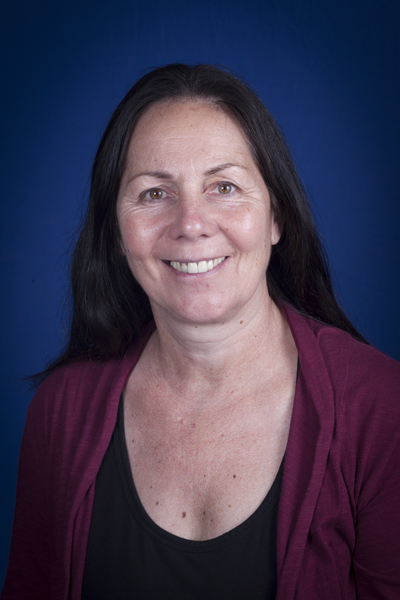Laura Meyerson’s unconventional path to success
URI Professor Laura Meyerson is the newest member of The Ecological Society of America. Photo from uri.edu.
Department of natural resource sciences professor Laura Meyerson was recently named a fellow of the Ecological Society of America (ESA) in recognition of her contributions to the field of ecology.
The ESA is a professional society for ecologists, and while anyone can become a member of it, becoming a fellow is harder. First, fellows must be nominated and get letters of support from others in the field. Then, a panel decides who will be named a fellow based on the letters, the candidate’s CV and more.
“The Ecological Society of America is a really important organization,” she said. “I’ve been a member since I was a graduate student. I’ve been going to their annual meetings for years, presenting my research and publishing in their journals. It’s really, really meaningful, it’s humbling and it feels fun. It feels like a little bit of recognition, which was really nice because we’ve worked hard.”
Meyerson’s work has been looking at phragmites as a model species. Phragmites are a species of tall grass that grow on every continent except Antarctica in many different conditions such as seashores, mountains, freshwater and saltwater.
During her time studying phragmites, Meyerson has looked at their genetics, genomics, plant chemistry, plant-insect interactions, microbial communities and, most recently, metabolomics.
When she was studying their genetics, Meyerson was the first person to show that native and invasive varieties of phragmites were able to hybridize. Meyerson said that she is very proud of being the first to show this and is proud of the experiment that led to this finding.
Meyerson’s path to this point was not straightforward. After graduating high school, Meyerson attended New York University for a year before flunking out.
Having no idea what she wanted to do, Meyerson went to culinary school and started working in catering and in restaurants. After spending time as a cook on boats, she returned to New York City, but still found herself unsure of what she wanted to do with her life. She began working as a food stylist, but while on a work trip in Colorado, she realized she no longer wanted that career.
“I went out for a walk on this ranch, and [I thought] ‘I don’t want to do this anymore, I don’t like all the food waste associated with food styling,’” Meyerson said. “It wasn’t really what I wanted to do so I had this, like, epiphany moment out there in the rattlesnake-infested drylands of Loveland, Colorado. I had a talk with myself, I said, ‘what do you really want to do with your life?’ And I couldn’t really answer that question. But then I asked myself, ‘well, what do I really care about?’ And the answer that came back to me was the environment.”
After this, she decided to return to college to pursue her new calling. She ended up at Hunter College in New York City, where she got her bachelor’s degree in biology and immediately went to graduate school.
While Meyerson said that she does not recommend taking the exact path that she took, she believes that some students need to experiment and try new things to find their fit.
“Some students just know what they want to do and it’s perfect for them,” she said. “And then other students, they’re not really sure, you know, they might stop and start or they might change four or five times. I think that sometimes it can be really difficult to figure out what you love and what you really want to devote yourself to.”
Currently, Meyerson is working with two biological environmental sciences Ph.D. students, Lynde Dodd and Nicole Hagan. Dodd, a research biologist for the Army Corp. of Engineers who is on a long-term training assignment, said that working with Meyerson on her research with invasion ecology has been extremely rewarding.
“She’s an internationally known invasion ecologist,” Dodd said. “So for me, working with [Meyerson], I am going to the next level as far as my career and my experience and in working directly with her. She has broadened my knowledge base immensely, and she does it in a way that helps you to understand what you’re doing.”
Meyerson said that being named a fellow has been a real honor, and she looks forward to continuing her research in the field of ecology and conservation.

